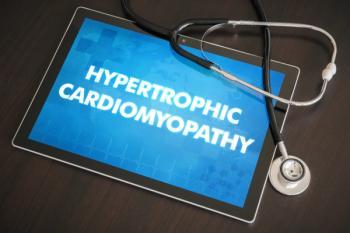
Nebivolol (Bystolic): Beta-blocker approved for the treatment of hypertension
FDA approved nebivolol on December 17, 2007, as monotherapy or in combination with other antihypertensive agents for the treatment of hypertension.
Nebivolol is a beta-adrenergic receptor blocker. This agent's mechanism of action in eliciting an antihypertensive response has not been fully established, but possible factors may include renin activity suppression; vasodilation; and decreased heart rate, myocardial contractility, and peripheral vascular resistance. Nebivolol was approved on December 17, 2007, as monotherapy or in combination with other antihypertensive agents for the treatment of hypertension.
Efficacy. The efficacy of nebivolol as monotherapy for the treatment of hypertension was assessed in 3 randomized, double-blind, multicenter, placebo-controlled trials. The 3 studies included a total of 2,016 patients (nebivolol-treated, n=1,811; placebo-treated, n=205) with mild-to-moderate hypertension and a baseline diastolic blood pressure (DBP) of 95 to 109 mmHg; the third trial enrolled only African-American patients. Study patients were treated with nebivolol (1.25–40 mg) or placebo once daily for 12 weeks. In general, nebivolol treatment resulted in significant reductions in trough sitting systolic blood pressure (SBP) and DBP compared with placebo (placebo-subtracted least-square mean reductions in trough sitting SBP/DBP: nebivolol 5 mg, range across 3 studies: –2.6 to –8.1/–3.2 to –5.5; nebivolol 10 mg, range across 3 studies: –3.1 to –9.2/–3.9 to –6.3; nebivolol 20 mg, range across 3 studies: –6.3 to –8.7/–4.5 to –6.9). A fourth study assessed the efficacy of nebivolol in combination with other antihypertensive agents. A total of 669 patients were treated with nebivolol (5–20 mg) once daily concomitantly with stable doses of ≤2 other antihypertensive agents (angiotensin-converting enzyme [ACE] inhibitors, angiotensin receptor blockers [ARBs], and thiazide diuretics) or with placebo. This combination therapy resulted in significant reductions in trough sitting SBP and DBP compared with placebo (placebo-subtracted least-square mean reductions in trough sitting SBP/DBP: nebivolol 5 mg, –5.7/–3.3; nebivolol 10 mg, –3.7/–3.5; nebivolol 20 mg, –6.2/–4.6). Across all studies, nebivolol was demonstrated to be effective in African-American patients, but the magnitude of the antihypertensive effect was less pronounced than the effect observed in Caucasian patients when nebivolol was used as monotherapy.
Safety. Patients with coronary artery disease (CAD) who are treated with nebivolol should avoid abrupt discontinuation of therapy, as abrupt discontinuation of beta-blocker therapy has been associated with myocardial infarction (MI), ventricular arrhythmias, and severe exacerbation of angina. Nebivolol should be used cautiously in patients with compensated congestive heart failure (CHF). Patients with bronchospastic diseases should not be treated with beta-blockers. Patients undergoing surgery who continue nebivolol treatment perioperatively should be carefully monitored if anesthetic agents that depress myocardial function are used; if nebivolol treatment is stopped before surgery, the risks of general anesthesia and surgery may be increased because of the heart's impaired ability to respond to reflex adrenergic stimuli. Beta-blockers may mask manifestations of hypoglycemia and clinical signs of hyperthyroidism, including tachycardia. This agent should be used cautiously in patients with peripheral vascular disease, as beta-blockers can precipitate or aggravate symptoms of arterial insufficiency in these patients. Caution should be exercised when patients are treated concomitantly with beta-blockers and verapamil- or diltiazem-type calcium-channel blockers. Patients with a history of severe anaphylactic reactions may be more reactive to allergens during treatment with beta-blockers. The most common adverse events associated with nebivolol treatment include headache, fatigue, dizziness, diarrhea, nausea, insomnia, peripheral edema, chest pain, dyspnea, rash, and bradycardia.
Newsletter
Get the latest industry news, event updates, and more from Managed healthcare Executive.

























